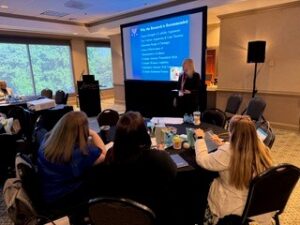Courts in many jurisdictions have been ordering Summary Jury Trials as a way to “encourage” attorneys to settle their cases. A number of Magnus’ clients have been through this process and have reported their experiences to us. In the Summary Jury Trial process, the Court assigns a “trial” date to the parties and sets up a one or two day trial using jurors who were not selected for other trials. The parties present an abbreviated version of their case and then one or more juries deliberate and reach a verdict which is then reported to the parties.
Drawbacks to Summary Jury Trials
Based on the feedback we have received from clients, there are a number of issues that hinder the usefulness of this process. These include:
- Voir dire is limited or non existent. Keeping in mind the jurors used for this process are often those who have been de-selected in other cases, the potential biases of the jurors are not controlled in any way.
- The presentation is abbreviated and witness testimony is limited or nonexistent.
- The results of this process are non binding, but the feedback is shared by both sides. This is the biggest concern pertaining to Summary Jury Trials.
The accuracy of the “verdict” is highly suspect. Because of the combined effect of a non binding process AND that both sides will hear what the jurors will have to say, many attorneys have expressed their reluctance to “show all their cards” in a court mandated Summary Jury Trial. As a result, we have been told of experienced trial lawyers making a weak presentation, intentionally, because of a lack of preparation, or due to a lack of interest in the outcome. In some cases, associates were allowed to present at the Summary Jury Trial as a way to get some “trial” experience.
Questionable Accuracy in Summary Jury Trials
The questionable usefulness and accuracy of the procedure is demonstrated by an example wherein one of Magnus’ defense clients went through the court ordered summary jury trial, with his adjuster present, and it resulted in two defense verdicts. Magnus’ client reported that the highly respected, very successful, plaintiff’s attorney made a lackluster presentation. The very next day Magnus conducted mock jury research for this client and the adjuster was also present when there were three plaintiff’s verdicts. It would appear that the attorney who role played the plaintiff’s case was more successful than the real plaintiff’s attorney! Fortunately the client/adjuster had the results of the mock jury exercise to help him in making an informed decision to resolve the case.
Mock Jury Research
Of course, in mock jury research, there are differences from actual trials that limit our ability to predict the trial outcome with 100% accuracy. For example, the arguments are abbreviated. However, in the Summary Jury Trials there is pressure to settle the case based on the “verdicts” rendered. In contrast, mock jury research is designed as a learning process and a way to test worst case information in a setting where only one side of the case is privy to the outcome so that the case can be refined and problems debugged. While the verdicts are still merely indicators, not predictors, there is no disincentive to hold back and not test potentially harmful case details. It is a very significant difference that the opposition is not participating!
You may not be able to avoid a Summary Jury Trial, and it may be somewhat informative. How you handle it requires significant thought given the difficult issues presented by the process. However, a Summary Jury Trial does not replace Mock Jury Research; they serve 2 different purposes. Mock jury research ensures that you are doing all that you can do to help yourself and your client prepare for a real trial.



